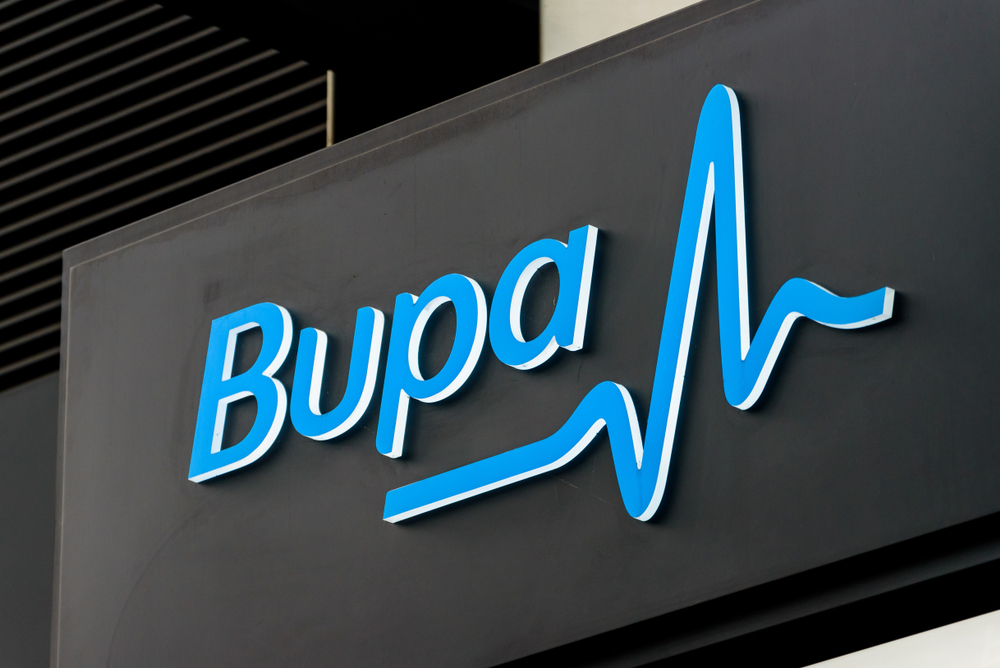Bupa suffered a £427m loss in 2022, reversing a £423m profit in 2021, driven by a £646m write-down in its UK dental operation as it struggled with workforce recruitment and retention and inflation.
A further £90m write-down in its UK care services businesses, along with regulatory and judicial rulings issues in Chile and increasing mandatory staffing requirements for care homes in Australia, took the total to £1bn.
Without the impairments underlying profit rose by 43% to £575m as the number of lives covered by health insurance grew by two million worldwide.
UK, Global and Dental
The health insurer reported growing customer numbers and revenues in its UK health insurance business – adding more than 275,000 members across private medical insurance (PMI), health trusts, dental plans and cash plans, taking it past three million.
However, Bupa Global lost 50,000 members of its international private medical insurance (IPMI) products – with coverage down to 460,000 members from 510,000 at the end of 2021.
Revenue in the Bupa Global and UK operation was up 9% to £3.75bn but underlying profit decreased by 58% to £25m, largely as a result of the impairments in the dental business.
Gross written premiums in this region grew by £313m (13%) to £2.64bn, according to the results.
Bupa noted: “For our largest line of business, health insurance, underlying profit increased from good customer growth, alongside both premium increases and careful cost management, which broadly offset higher claims and operating costs caused by the inflationary environment.”
It added that Bupa Global revenue and underlying profit increased “as a result of strong customer retention and new business sales, cost management and improved loss ratios due to pricing action”.
The insurer said it was developing propositions and product variants here “which responded to distinct local needs”, while implementing new claims adjudication and healthcare management systems.
However, the issues in the UK dental operation hit final figures hard, with several factors including workforce and inflation combining to worsen its outlook.
Bupa noted the £646m write-down was due to below target recruitment and retention of clinicians, combined with increased wage and energy costs, during the second half of 2022 that were set to hit cash flows.
Worldwide business
Overall, revenue in all health insurance operations was up 7% as customer numbers increased and as premiums rose to address global inflation, although Bupa said it “sought to manage costs for customers as much as possible.”
Total gross written premiums rose by £802m (8.6%) to £10.03bn from £9.23bn in 2021.
It added revenue growth was partially offset by cash returns to customers and premium increase deferrals in the Australian health insurance business after the commitment to not benefit from Covid-19.
Insurance customer growth of 8% represented nearly one million more lives covered driven by strong growth in the UK and continued growth in Australian, Polish, Turkish, Spanish and Brazilian businesses.
This growth increased to 16% when including its associate businesses, and the impacts of Covid-19 subsided in most markets but persisted in parts of Asia Pacific.
Good organic growth
Bupa said the results reflected continuing good organic growth across many of its insurance businesses and increased activity in health provision businesses to meet increasing customer demand.
“These results were offset by ongoing challenges in workforce availability across several markets, particularly in UK Dental,” it said.
“During 2022, global inflation rose sharply resulting in higher central bank interest rates, leading to increased cost of capital which reduces the valuation of business units for impairment testing,” it added.
There were asset impairments across goodwill, other intangibles and tangible assets during the second half of the year totalling £1bn.
“The material business unit impairments were UK Dental (£646m), Bupa Chile (£161m), BVAC Australia (£103m) and UK Care Services (£90m). These were the result of macroeconomic, and in some cases, sectoral and operational factors,” it added.
Bupa Chile’s loss was driven by forecasts reflecting the judicial and regulatory action taking place in the country around private healthcare.
Meanwhile the Bupa Villages and Aged Care Australia loss was due to future cash flows being affected by lower occupancy and higher future staff costs expected from implementing minimum mandatory care minutes for residents.
‘Issues to fix’
Group CEO Iñaki Ereño said the results demonstrated positive underlying performance in a challenging economic environment and reflected the rising demand for healthcare across all markets.
“We are transforming Bupa worldwide with a focus on digitalisation and customer service, and good organic customer growth demonstrates how our customers see the value of our services, even in a cost-constrained environment,” he said.
“Significant goodwill impairments show that our businesses are not immune from macro-economic challenges and that we also have issues to fix in some businesses.
“We are encouraged by the quality of the growth across multiple businesses as they transform, while we continue to deliver quality and accessible healthcare for our customers.”
